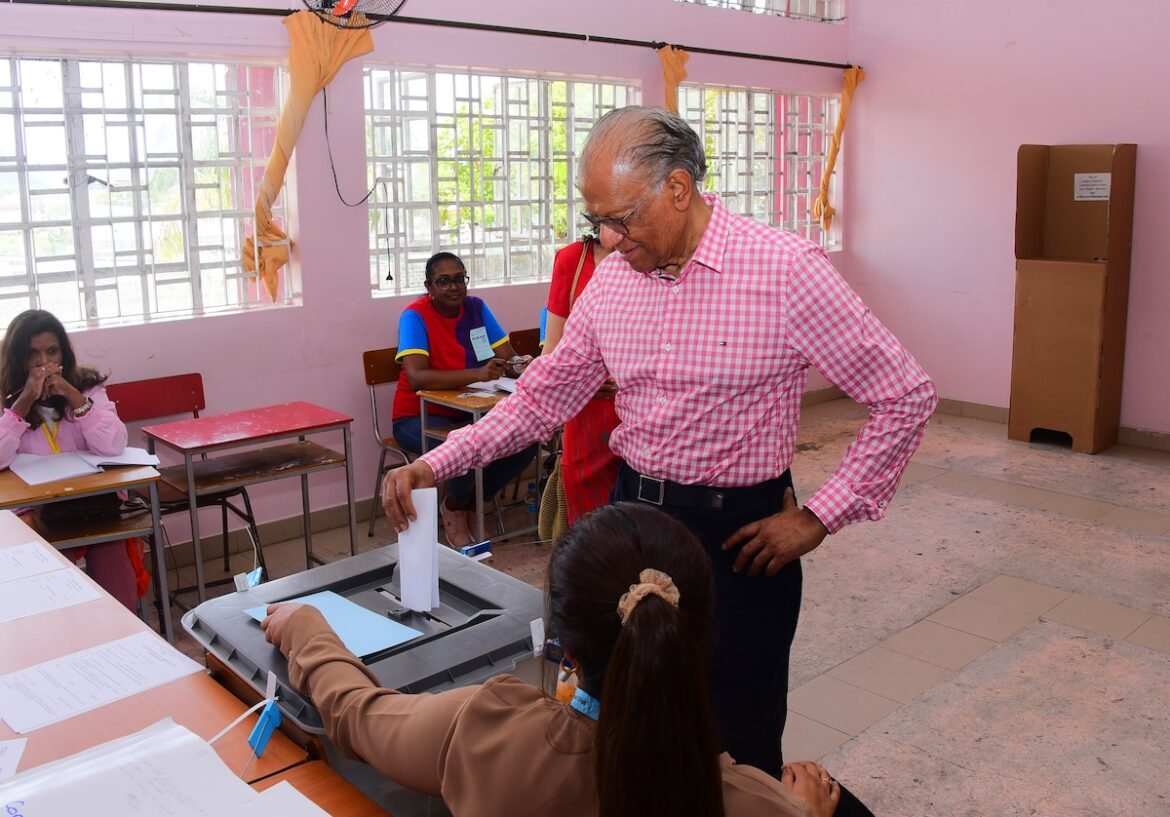Mauritius Holds Crucial Election as Voters Seek Economic Relief Amid Rising Living Costs
Mauritius held its parliamentary election on Sunday, with Prime Minister Pravind Kumar Jugnauth and opposition leaders promising to address the pressing cost of living issues that have affected many residents of the Indian Ocean nation. Voting ended at 6 p.m. local time (1400 GMT), with results expected on Monday, according to the Mauritius electoral commission.
Economic Challenges at the Forefront
With a population of around 1.3 million, Mauritius positions itself as a strategic link between Africa and Asia, benefiting from sectors like offshore finance, tourism, and textiles. The government projects a 6.5% economic growth rate this year, slightly down from last year’s 7.0%. However, many residents are not experiencing the economic benefits, leading to widespread demands for policies that directly improve their quality of life.
Competing Promises from the Prime Minister and Opposition
Prime Minister Jugnauth’s Alliance Lepep coalition has committed to boosting minimum wages, increasing pensions, and reducing the value-added tax on essential goods. The coalition also aims to allocate funds from a recent agreement with the UK, which includes payments for Britain’s handover of the Chagos Islands, where the U.S.-UK Diego Garcia airbase is located.
Political analyst Subash Gobine noted that Jugnauth’s coalition is campaigning on economic growth, promising financial relief for various sectors of the population.
The opposition, led by the Alliance du Changement coalition with Navin Ramgoolam, and another coalition, Linion Reform, promises alternative reforms, including free public transport, internet access, and fuel price reductions. If successful, Linion Reform leaders Nando Bodha and Roshi Bhadain plan to rotate the prime minister position.
Voter Sentiment Reflects Desire for Change
Voters were choosing members for the 62-seat parliament from a pool of 68 parties and five major political alliances. Music instructor Ivan Mootooveeren, 41, said he voted for the opposition, believing the country needed a new direction. Another voter, David Stafford, 36, felt that young voters would play a key role in the election, with many prioritizing economic innovation and job creation.
Arvin Boolell, deputy leader of the Labour Party in the opposition coalition, stated that voter turnout likely exceeded 75%. The electoral commission has yet to release an official turnout figure.
Social Media Restrictions Spark Debate Ahead of Election Day
In the days leading up to the election, Jugnauth’s administration imposed a temporary social media restriction due to national security concerns following leaked conversations involving public figures. Although the restriction was lifted a day later, opposition parties criticized the government’s decision, calling it an attempt to control information.
Mauritius Awaits Outcome as Economic Relief Remains Top Priority
As Mauritius awaits the election results, the nation’s future leadership will face the challenge of addressing high living costs and fostering economic stability. Whichever party or coalition secures the majority will also gain the prime minister’s post, with the new administration under pressure to fulfill promises of economic relief and innovation.
Stay connected to know more on arcnews.online for global news like Mauritius Election Results Awaited as Parties Promise Solutions to Rising Cost of Living. For videos updates visit our YouTube. Do subscribe to Arcnews to get latest updates directly in your mail box.
Have A Great Day.


